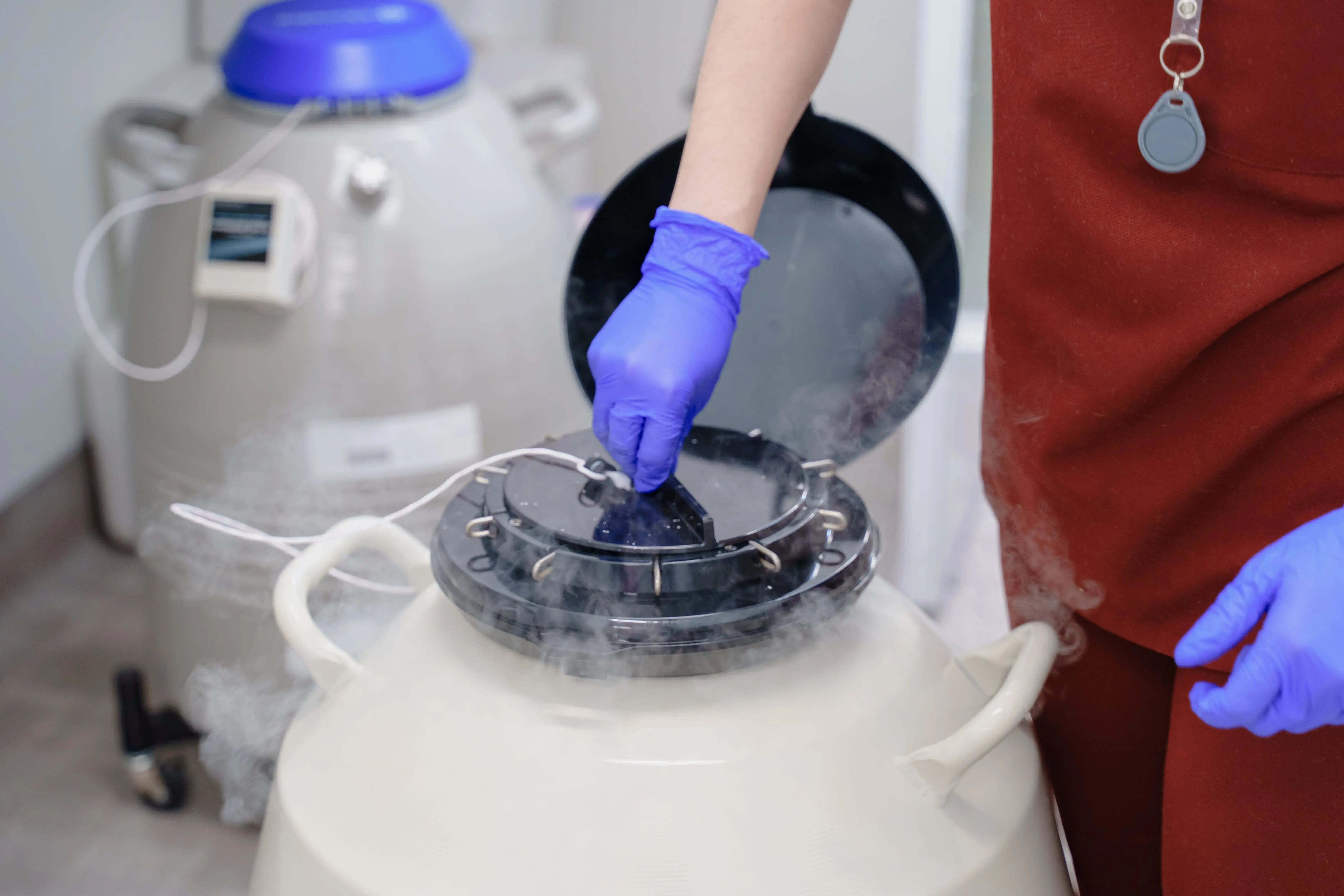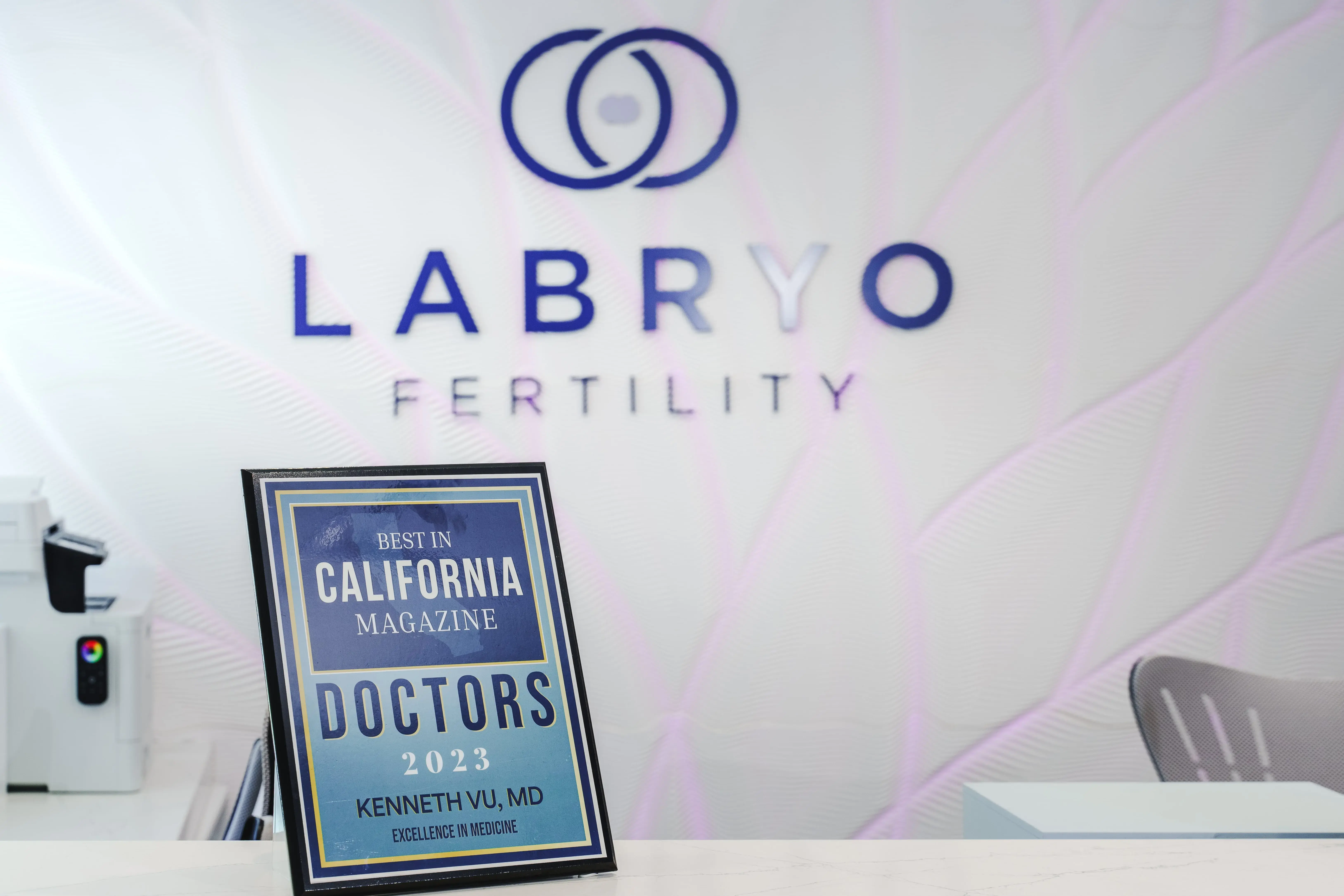Blogs
Egg Freezing Trends Among Career Women
October 27, 2025Molly Chu Chen - Labryo Fertility
LifestyleOver the past two decades, feminism and the push for gender equality have dramatically reshaped the professional landscape. Women are increasingly occupying leadership roles and entering competitive industries at levels more and more than ever before. However, this progress comes with its own set of challenges. Career-focused women will be exposed to high-pressure work environments, tight deadlines, and the constant pursuit of excellence.




Studies have shown that chronic stress, high workloads, and irregular schedules can negatively impact reproductive health, particularly egg quality, which naturally declines with age. This connection is supported by research published in the National Library of Medicine, which examined 501 women in the United States and found that higher levels of salivary α-amylase - a biomarker of stress - were significantly correlated with a longer time to pregnancy. Women in the highest quartile of α-amylase (a biomarker for stress levels in the body) were twice as likely to experience infertility. Similarly, another study involving 135 IVF patients measured cortisol levels through hair samples, reflecting stress over the prior three to six months, and found that elevated cortisol levels were significantly correlated with lower pregnancy rates.
For many women, these findings highlight the growing concern of balancing career ambitions with biological timelines. Egg freezing has therefore emerged as a proactive solution, allowing women to take control of their fertility and plan their future without compromising their professional goals.
1. How Career Pressure Affects Egg Quality

1.1 The Fertility Impact of Stress
Prolonged stress triggers hormonal imbalances in the body, particularly involving cortisol and estrogen levels. High cortisol levels can interfere with the normal function of the ovaries, reducing egg quality over time. When the body experiences constant stress, elevated cortisol levels can inhibit the pulsatile secretion of gonadotropin-releasing hormone (GnRH), resulting in suppressed secretion of follicle-stimulating hormone (FSH) and luteinizing hormone (LH). This hormonal imbalance impairs ovarian function, leading to ovulatory dysfunction and reduced fertility.
This effect is compounded when women delay childbearing for career reasons. As age naturally decreases fertility potential, combining delayed childbearing with chronic stress can significantly affect egg quality. Understanding these biological implications helps women make informed decisions about family planning and fertility preservation.
1.2 Lifestyle and Reproductive Health
Fast-paced work environments often encourage irregular sleep patterns, high caffeine intake, and insufficient exercise—all factors that can accelerate the decline in egg quality. Poor diet, late nights, and constant travel can also negatively impact hormone balance and ovarian function over time.
Additionally, the delay of family planning due to career prioritization may make natural conception more challenging as women reach their mid-30s and beyond. Maintaining a healthy lifestyle, managing stress, and being aware of fertility preservation options can help mitigate some of these risks and support long-term reproductive health.
1.3 Psychological Considerations
The mental burden of juggling career ambitions with fertility concerns can also affect reproductive health. Persistent anxiety, stress, or feelings of urgency regarding family planning can disrupt hormonal regulation, which may interfere with ovulation cycles and egg quality.
Moreover, this mental strain can create a vicious cycle where stress worsens reproductive health, which in turn causes more anxiety and pressure. Recognizing the psychological impact of career and fertility demands is essential for women considering fertility preservation methods like egg freezing.
2. The Relevance of Options: Why Egg Freezing is Becoming a Trend

2.1 Corporate Support and Incentives
Leading tech companies like Apple and Facebook have recognized the value of supporting women’s reproductive health. In 2014, both companies introduced egg freezing as part of their employee benefits, offering to cover the procedure and storage costs for female employees.
Apple's initiative, effective from January 2015, aimed to empower women to excel in their careers while balancing family planning. As stated by Apple, "We want to empower women at Apple to do the best work of their lives as they care for loved ones and raise their families."
This corporate backing reflects a growing societal shift toward acknowledging that women need options to balance career and family planning. By covering egg freezing costs, these companies are sending a message that women’s reproductive choices are important and should not limit professional advancement.
2.2 A Growing Trend in the Industry
Egg freezing is no longer a niche procedure; it has become increasingly common among career-focused women. According to the Society for Assisted Reproductive Technology (SART), the number of elective egg freezing cycles in the U.S. increased by more than 50% between 2010 and 2016, with most patients in their late 20s to early 40s. A 2018 survey published in Fertility and Sterility found that about 70% of women undergoing egg freezing were doing so for career or educational reasons, highlighting its growing role as a proactive fertility preservation strategy. Fertility clinics across the globe have reported similar trends, noting significant rises in inquiries, particularly from women in high-pressure professional roles.
With more awareness and acceptance, freezing eggs has become a strategic choice for women who want to maintain control over their reproductive future. This trend also reflects societal recognition that women’s professional aspirations and family planning can coexist with the right medical support.
2.3 Empowerment Through Choice
The rise of egg freezing allows women to feel empowered, knowing they have a viable option to delay childbearing while advancing in their careers. It also encourages open discussions about fertility and reproductive health, reducing stigma and increasing confidence in planning for both professional and personal milestones.
Women who choose egg freezing can approach family planning with a sense of security and control, allowing them to focus on career growth without the added pressure of a ticking biological clock. This empowerment is a major factor driving the popularity of egg freezing today.
3. Where to Start and What to Keep in Mind

3.1 Ideal Timing for Egg Freezing
While egg freezing is possible at various ages, medical experts generally recommend considering the procedure in the late 20s to early 30s, when egg quality is optimal. Freezing eggs earlier can significantly increase the chances of a successful pregnancy later, providing peace of mind for women focused on career growth.
Even women in their mid-30s can benefit from egg freezing, though success rates may be lower compared to younger candidates. Early consultation with a fertility specialist can help women understand their options and make informed choices based on individual health factors.
3.2 Understanding the Procedure and Considerations
Egg freezing involves ovarian stimulation, egg retrieval, and cryopreservation. Women should be aware of the process, costs, and potential success rates. Consultation with a fertility specialist is crucial to assess individual health factors and fertility potential.
It’s also important to understand that egg freezing is a medical procedure with possible risks, including ovarian hyperstimulation and procedural complications. Being well-informed allows women to make decisions confidently and ensures they receive proper care throughout the process.
3.3 Advantages Beyond Fertility
Besides preserving reproductive potential, egg freezing offers psychological benefits. It reduces pressure to rush family planning decisions and allows women to focus on their careers without the anxiety of a ticking biological clock.
In essence, egg freezing provides flexibility, freedom, and the assurance that women can make personal choices on their own timeline. It allows them to plan both professional and family milestones strategically, giving peace of mind and control over their future.
4. Why Choose Labryo Fertility Center?

4.1 Personalized and Flexible Treatment Plans
Labryo Fertility Center is dedicated to providing individualized care tailored to each patient's unique circumstances and goals. Their team of experienced fertility specialists works closely with patients to develop personalized treatment plans that address specific needs and preferences. This patient-centered approach ensures that every step of the fertility journey is guided with expertise and compassion.
4.2 High Survival and Success Rates
Labryo Fertility Center boasts impressive frozen egg survival rates, with an average IVF pregnancy success rate exceeding 85%. This achievement is attributed to their meticulous approach to embryo development and the leadership of Chief Embryologist Molly Chu-Chen, who has over 20 years of experience in the field. Under her guidance, the center maintains consistent, high-performing protocols in egg handling, fertilization, and embryo transfer, achieving an average fertilization rate of 96.20% for eggs from women under 35 and 96.70% across all age ranges.
4.3 Multilingual Support
Understanding the importance of clear communication in fertility care, Labryo Fertility Center offers multilingual support to accommodate a diverse patient population. Our team is fluent in English, Mandarin, Cantonese, and Spanish, ensuring that patients fully understand every step of the treatment process while eliminating language barriers and cultural differences. Contact us for more Info!
